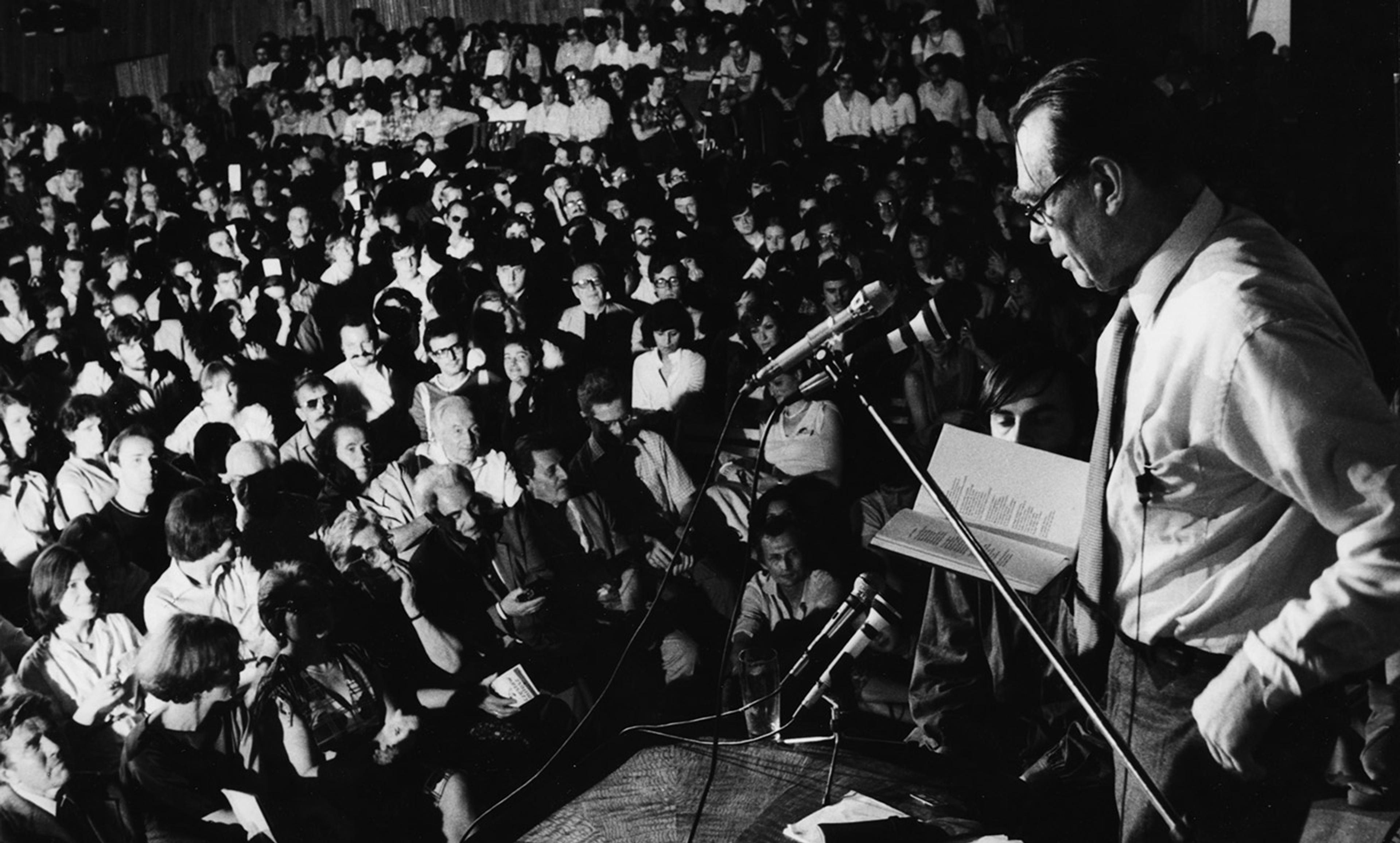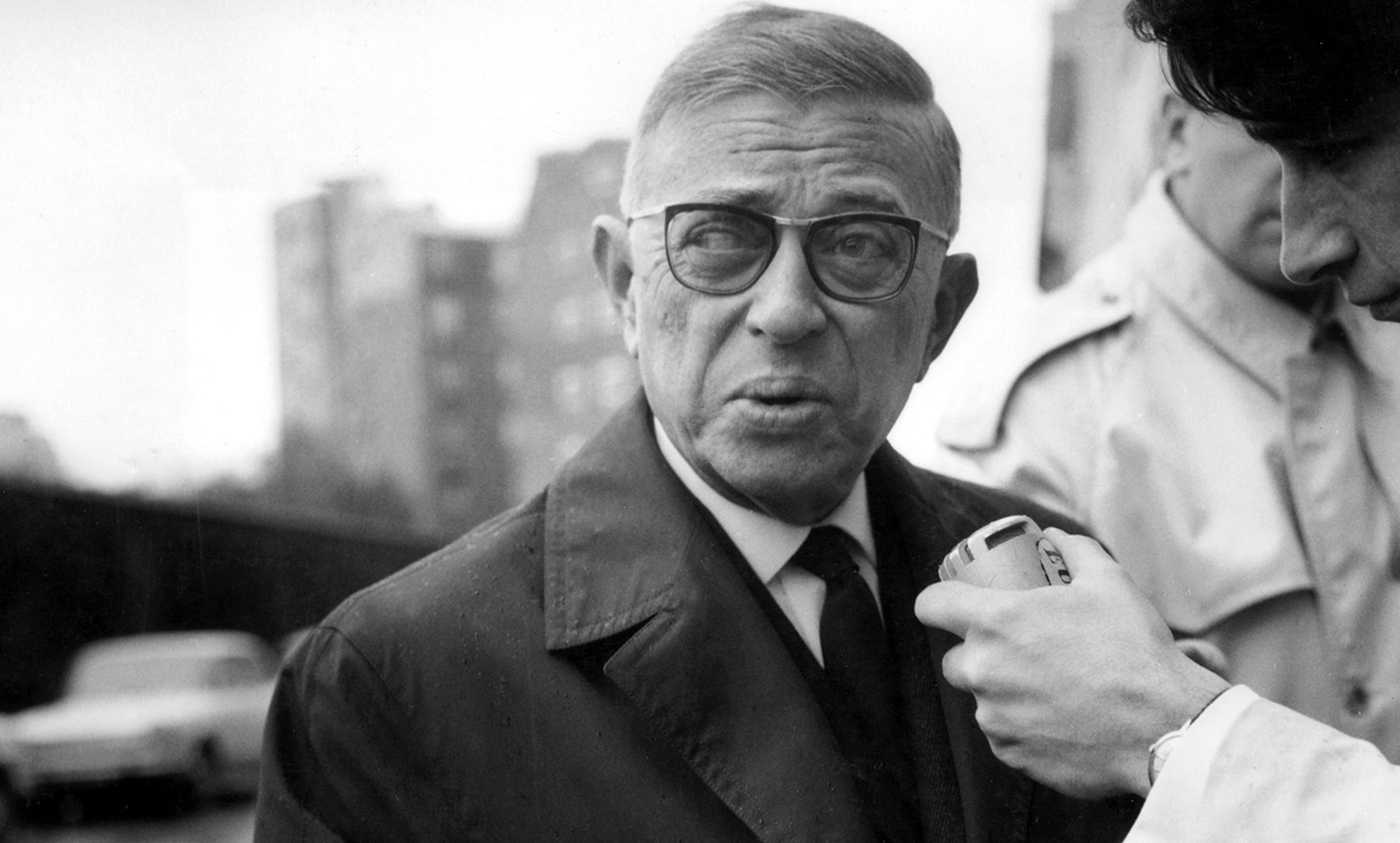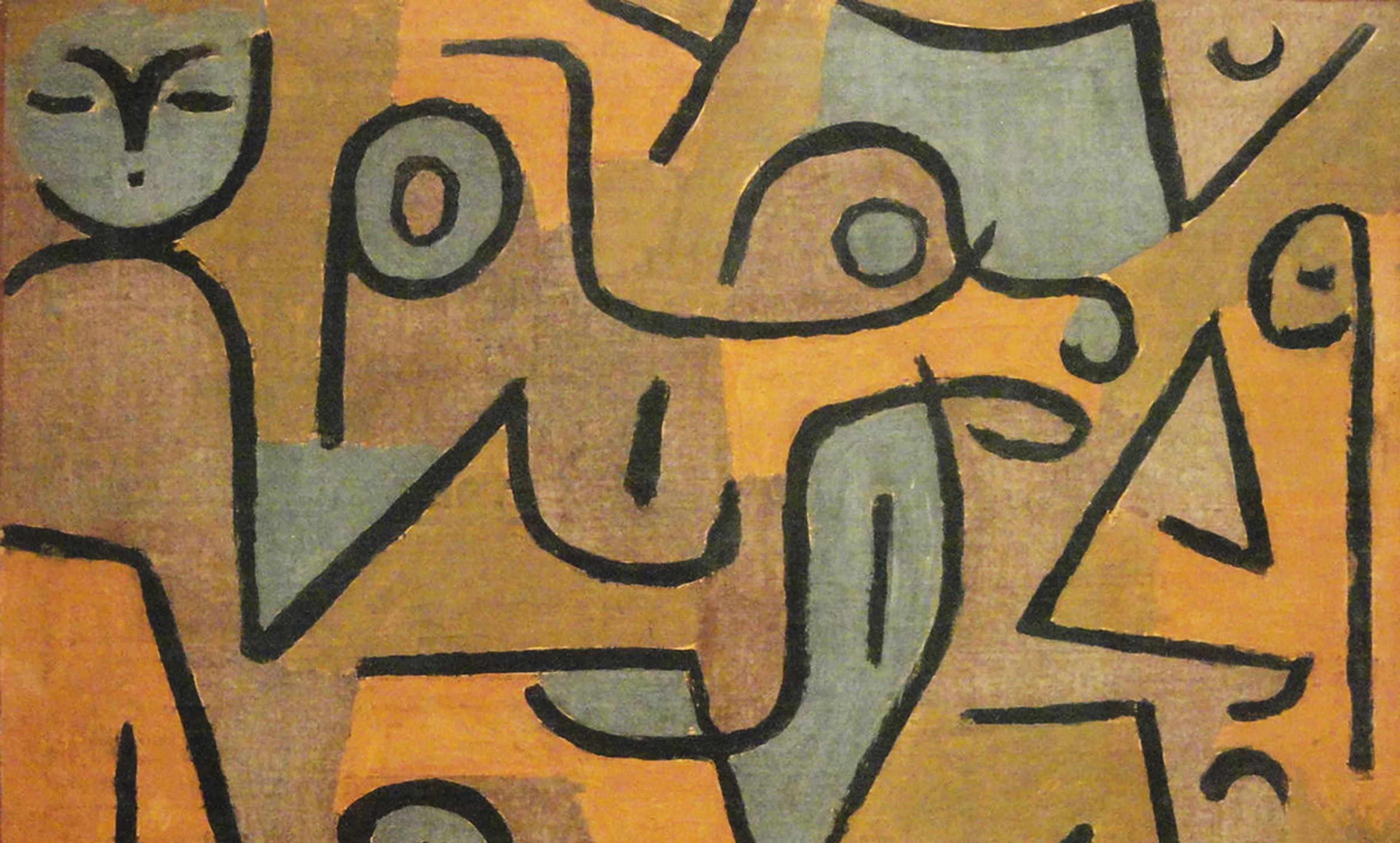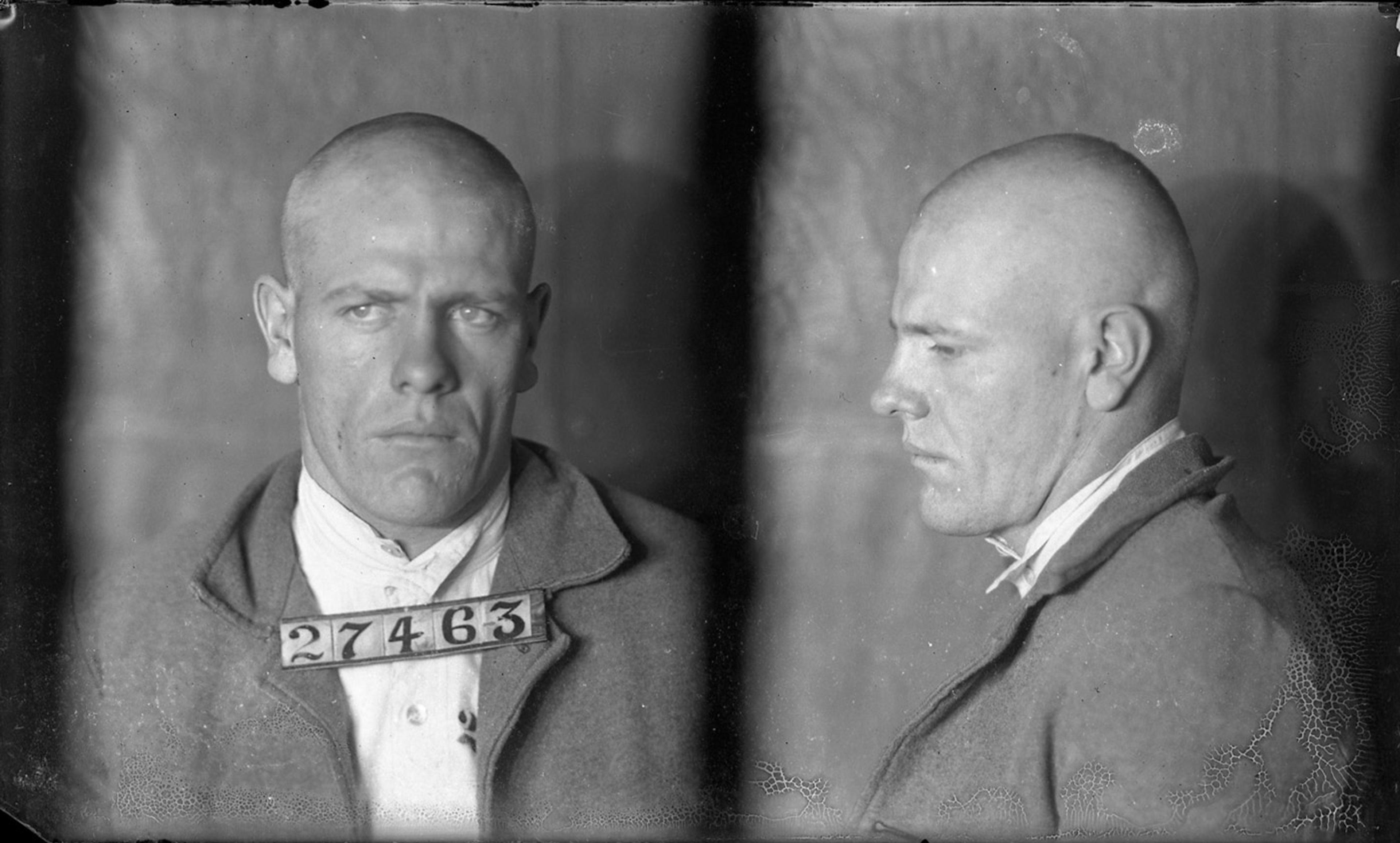Poet and Nobel Prize winner Czesław Miłosz speaking onstage to a crowd of students at Warsaw University, Poland, 1981. Photo by Keystone/Getty
In the spring of 1949, poet Czesław Miłosz was working as a cultural attaché in the Polish embassy in Washington, DC. Just four years earlier, he had been on the run, in exile from the ruins of Warsaw, helping a peasant named Kijo dig out his potato crop. Now he was in the United States, amid its postwar plenty. The wartime emigration to the US, its disjuncture and contrasts, led Miłosz, like Hannah Arendt, to think deeply about intellectual life in authoritarian societies. First, however, came the dissatisfaction.
Despite the improvement in his material circumstances, Miłosz discovered that the diplomatic corps did not suit him. He found himself subject to tremendous ideological pressures, from the Left and the Right. Miłosz had long thought of himself as a person of the Left, in favour of progress and aid to the downtrodden. He didn’t want Poland to become a Stalinist puppet, yet as a diplomat he represented a government whose policies he could barely stomach.
Increasingly crushed between duty and conscience, Miłosz began to dissemble. Asked about Stalinist atrocities, he knew the truth of the accusation, but had to dodge. Writing in his memoir Native Realm (1968), Miłosz described how, meeting with US ‘admirers of progress in the East, hens pleading for a few kernels of lying propaganda’, he could only smile at the ‘perverse, comic masquerade’. Mostly he stayed silent. Until he didn’t. In 1951, he defected to France. If not for the last-minute intervention of a friend, he probably would have been detained in Warsaw and jailed. (The rather dramatic circumstances of his flight are ably told in the newly translated Miłosz: A Biography by Andrzej Franaszek.) Now he was free to talk. His first subject was his former silence.
In 1953, he published The Captive Mind, a series of essays about the inner lives of intellectuals living under totalitarianism. In it, he took aim at the notion that tyranny crushes thought. Rather, he found that illiberal regimes could provoke their citizens to engage in the most elaborate mental acrobatics. In The Origins of Totalitarianism (1951), Arendt had written that the ideal subjects of totalitarianism are people ‘for whom the distinction between fact and fiction … and the distinction between true and false … no longer exist’. Miłosz found that the reverse was true. The subjects produced by totalitarianism were not mindless drones, but skillful dissemblers, as capable of self-justification and moral hair-splitting as the best-trained Jesuit. The name Miłosz gave to this new talent was ‘Ketman’. It is as difficult to define precisely as it is essential to understanding the nature of life under authoritarianism.
Miłosz borrowed the term ketman from the history of Islamic theology. He found it in the French orientalist Arthur de Gobineau’s Religions and Philosophy of Central Asia (1865). However noxious Gobineau’s politics, he was a passionate, if amateur student of the Muslim world. After serving as Alexis de Tocqueville’s personal secretary in the aftermath of the 1848 revolution, Gobineau secured a post as France’s minister to Persia. There, he translated René Descartes into Farsi and befriended the members of various heterodox groups, one of whom introduced him to the concept of ketman.
In the early years of Islam, when Muslims found themselves amid hostile unbelievers, they were allowed to conceal their true beliefs in order to preserve the faith. Later, Shi’ites, who lived for centuries as a persecuted minority under Sunni rule, took this allowance and transformed it into an injunction known as taqiyya, from the Arabic word for prudence, or concealment (ketman, or kitmān, is the Persian word for a closely related concept). After the re-conquest of Spain by Christian forces, some Muslim clerics encouraged their followers to practise taqiyya in order to survive and maintain their religion. Throughout history, the Nicodemites, the Waldensians, the Socinians, the recusant Catholics and other Christian sects have adopted a similar approval of dissimulation.
To understand what Miłosz meant by ketman, it is necessary to consider post-war Poland. The Stalinist curtain had just fallen on the country in the early 1950s. The imposition of communism in Poland happened swiftly, violently, and in a way that was different from what people – especially Leftists – expected. In the historian Jan Gross’s phrase, it was a ‘revolution from abroad’, imposed with little say from the people on the ground. They had to quickly adapt to a new language and new mores. Suddenly, people were acting differently, speaking differently. Poets, professors and intellectuals – all those called upon not merely to obey the regime, but to proselytise on its behalf – changed the most.
Even as Miłosz’s fellow intellectuals fell in line with the new regime, they privately insisted that they were acting of their own free will. Ketman helps to explain this seeming contradiction. Persecution has long forced believers to conceal their beliefs. But ketman as used by Miłosz means something more than just simulation. It goes deeper than mere lying. Ketman reaches deeper into the soul than simple hypocrisy. Ketman deceives the deceiver, as much as the person being deceived.
Time and again, Miłosz returns to the metaphor of an actor on stage. It is a continuous performance, allowing those who engage in it to survive the sensation of living with a divided mind. As Miłosz puts it, ketman is a ‘self-realisation against something’. He didn’t view it as something purely imposed from outside. As a poet and a radio broadcaster, he knew that performance, however coerced, can be a source of identification: ‘After long acquaintance with his role, a man grows into it so closely that he can no longer differentiate his true self from the self he simulates.’ He saw that deception can carry its own pleasures:
To say something is white when one thinks it black, to smile inwardly when one is outwardly solemn, to hate when one manifests love, to know when one pretends not to know, and thus to play one’s adversary for a fool (even as he is playing you for one) – these actions lead one to prize one’s own cunning above all else. Success in the game becomes a source of satisfaction.
In origin, ketman is a mental defence. It is a way of living with contradiction. It allows those adept at it to create private sanctuaries of the mind, untouched by compromise, even as compromise floods the rest of their lives. In The Captive Mind, Miłosz divided ketman into eight varieties: national, artistic, professional, skeptical, metaphysical, ethical, and the ketman of revolutionary purity. Each involves a compromise in one area of one’s life to satisfy the demands of another, for instance, by nodding towards political orthodoxy in order to continues one’s professional work, or by finding works to translate that have some inherent value (Alexander Pushkin, say) and that still flatter the regime.
Miłosz knew that over time such compromises prove to be brittle. To practise ketman is to become endlessly adaptable. It can help one reach new ‘heights of cleverness and psychological perspicacity’. But all this ingenuity, the endless masquerade, serves more to comfort the liar than it does to deceive those in power. As Miłosz warned the practitioners of metaphysical ketman: ‘Their defence against total degradation is … [to] swindle the devil who thinks he is swindling them. But the devil knows what they think and is satisfied.’ Sometimes, outward compliance is all the tyrant needs.






